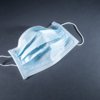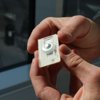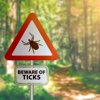Fritextsökning
Artiklar per år
Innehållstyper
-

Unexpected study results on testosterone – no reduction in fracture risk
Testosterone treatment is known to increase bone density and bone quality. However, a study now suggests that supplementation with the male sex hormone does not reduce the risk of fractures, but rather increases it. The researchers behind the study were surprised by this result.
-

Major investment in women’s health – for a more equal healthcare system
”The regional differences need to decrease and the long-term supply of midwives and other professions needs to be secured,” write Acko Ankarberg Johansson and Désirée Pethrus (both Christian Democrats), in an opinion article.
-

Ingrid Lönnstedt: What does the p-value mean?
The smaller the better, and preferably smaller than 0.05. A p-value smaller than 5% means that the treatment effect is statistically significant at 5% significance level. But what does that mean? Read Ingrid Lönnstedt´s column to learn more.
-

Samuel Lagercrantz: We are currently seeing medical breakthroughs in these areas
Samuel Lagercrantz, Editor in Chief of Life Science Sweden, lists three medical fields in which we are currently seeing major breakthroughs and two fields in which we can see some long-awaited positive developments.
-

Business Sweden: “Companies have a lot to offer in data-driven precision medicine”
Data-driven precision medicine can potentially solve major healthcare problems, states Business Sweden in a new report on the subject.
-

“You discover one thing – and then 10 new questions arise”
COVID-19, diabetes, heart disease, and the impact of dog ownership on humans are just some of multitasker Tove Fall’s areas of research. However, her current focus is on her next field: the role of gut flora in human health.
-

The physician at the tech giant: “Observations in the emergency room made my mind up”
When Nasim Farrokhnia was in third grade at school in Tehran, the capital of Iran, her father gave her a book about Marie Curie, which soon became her favourite book. Perhaps her interest in science was born there and then, as science and new technology have since been a constant feature of her working life. Today, she is a Healthcare Manager in Microsoft’s Western Europe team.
-

Pfizer’s Paxlovid is being tested against post-COVID in a major Swedish study
In a new study conducted at the Karolinska University Hospital, Pfizer’s COVID drug, Paxlovid, is now being tested in patients with post-COVID. The study is one of the most extensive studies in the world currently being conducted for a drug for post-COVID.
-

From the sea of Åland to a self-test for lithium
Four years ago, a meeting on the sea of Åland resulted in the development of a self-test for lithium levels in the blood. The hopes are that the test will be available for individuals with bipolar disorder in the future.
-

The Swedish Life Science Office: “We lost in both coordination and manpower”
Since the turn of the year, the Swedish government’s life science office has operated at a lower capacity. Life Science Sweden has spoken to Pontus Holm, Departmental Secretary at the office, about the ongoing work.
-

Norwegian company wins bidding battle for Sensidose
The lengthy battle to acquire medical device company Sensidose is apparently over. Generic medicines company EQL Pharma is pulling out, selling its shares and leaving the way open for Norwegian company Navamedic.
-

The first Lyme disease vaccine faces a delay
Pfizer and Valneva’s Lyme disease vaccine, which could be the first of its kind, is facing delays of about a year. The reason is problems at trial sites in the United States, which have forced the companies to drop half of the participants in an ongoing Phase III study.
-

Confidence in childhood vaccines is in decline worldwide
Since the pandemic, confidence in vaccinating children has plummeted. In a new report, UNICEF urges world leaders to act before the situation worsens. In 52 out of 55 countries surveyed, public perception of the importance of vaccinating children has declined.
-

Meeting with focus on South Korea and Japan’s life sciences
Large, complex and exciting – this is how Britta Stenson, Business Sweden, describes the life science markets of Japan and South Korea, which took centre stage during a webcast seminar.
-

Column: ”Authentic leadership and clear mandates pave the way for more female CEOs”
”I believe that the aspect of having clear mandates and titles on the one hand and women progressing into top positions must be explored further”, Helena Strigård writes in a column.
-

Precision medicine centre: “Extensive activity on several fronts”
Two years ago, the Karolinska Institutet and the Karolinska University Hospital announced that they would jointly launch the Precision Medicine Centre. Medtech Magazine called Anna Wedell, who is heading the work, to find out…
-

The government proposes fines for pharmaceutical companies that fail to notify drug shortages in time
According to a compilation from the Swedish Medicines Agency, the number of residually notified medicines increased by 54 % in Sweden last year compared to the previous year. In a bill presented by the government a number of proposals are put forward to counteract the problem.
-

"Unclear proposal from the EU Commission on how to solve the MDR challenges"
Even before the EU regulation on medical devices (MDR) came into force, medical technology companies and doctors were concerned that it would endanger the availability of medical devices in the EU. Unfortunately, the fears have come true.
-

She creates pharmaceuticals on a 3D printer
The correct dosage for each individual, regardless of whether the pharmaceutical is for a seriously ill child or a frail elderly person, is the mission of a well-advanced project with 3D-printed drugs at Uppsala University. “It will soon be available in clinics”, says Christel Bergström, who is heading the project.
-

“We need to build flexible operating theatres”
Flexible operating theatres, micro-sensors on surgeons to monitor their well-being and 3D images projected onto organs to be operated on. These are a few ideas that three specialist surgeons are suggesting for the operating theatre of the future.
-

Biosimilars bring price pressure, but are they sufficiently used?
When biosimilars were introduced just over 16 years ago, hopes were raised that they would give many more patients access to effective but otherwise extremely expensive treatments with biological drugs. So, how well has Swedish healthcare used biosimilars? The answer partly depends on whom you ask.
-

Newly discovered gene variant linked to protection against abdominal obesity
American researchers believe they have identified a rare gene mutation that protects against abdominal obesity and metabolic syndrome. The ambition is that the discovery will lead to new treatments that can help reduce the risk of type 2 diabetes and coronary artery disease.
-

Anna Törner: To kill your darlings
Hopes were high when Anna Törner and her colleague started a study on a dietary supplement that seemed unbelievably good. “Enthusiastically, we dreamed of exciting results and perhaps a publication in a high-impact journal,” she writes in a column.
-

Hello Angelica Loskog!
Life Science Sweden would like to know more about Angelica Loskog and interviews her about her life as a researcher.